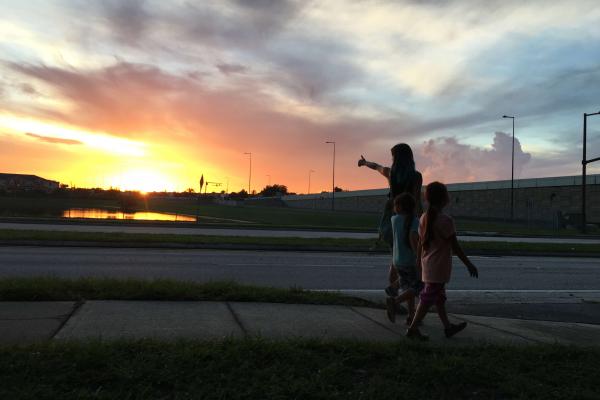Oct 6, 2017
Orlando, Fla. is most known for the Walt Disney World theme parks that draw millions of visitors to the area each year. Yet few realize that the discount hotels they drive past on their way to the parks are occupied not by tourists, but by the homeless. They’re who The Florida Project director Sean Baker refers to as the “hidden homeless,” as they live, mostly unnoticed, at the fringes of the billion dollar resort. In The Florida Project, their stories find a platform.
Read the Full Article

Already a subscriber? Login
